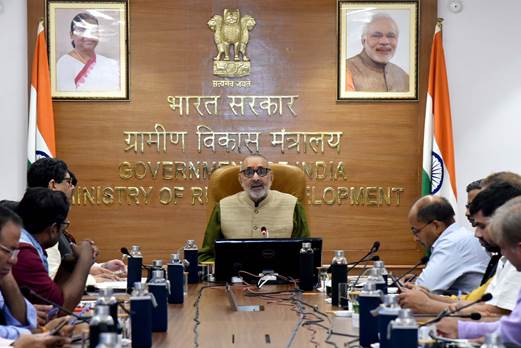Table of Contents
Introduction: The Ministry of Panchayati Raj
The Ministry of Panchayati Raj is a pivotal branch of the Government of India dedicated to promoting decentralization and enhancing local governance across the states.
Established in May 2004, this ministry plays a crucial role in overseeing the Panchayati Raj Institutions (PRIs), ensuring that the principles of local self-governance are effectively implemented at the grassroots level.
Vision
To attain decentralized and participatory local self-government through Panchayati Raj Institutions (PRIs).
Mission
Empowerment, enablement, and accountability of Panchayati Raj Institutions to ensure inclusive development with social justice, and efficient delivery of services.

The Evolution of Decentralized Governance
India’s governance structure is characterized by its federal nature, where powers and functions are divided between the Union Government and the State Governments. This division facilitates efficient administration and governance across the country. However, the 73rd and 74th Constitutional Amendment Acts of 1992 marked a significant shift by introducing a third tier of government. These amendments decentralized powers further, distributing them to Local Self Governments, including Panchayats at the village level, and Municipalities and Municipal Corporations in towns and large cities.
The Role and Responsibilities of the Ministry of Panchayati Raj
The Ministry of Panchayati Raj is entrusted with all matters pertaining to the Panchayati Raj and its institutions. It ensures that the decentralized governance model is implemented effectively, promoting transparency, accountability, and grassroots participation in the democratic process. The ministry’s responsibilities include:
- Policy Formulation: Developing policies and frameworks to guide the functioning and administration of Panchayati Raj Institutions.
- Capacity Building: Providing training and resources to enhance the capabilities of Panchayat members, ensuring they are well-equipped to perform their duties.
- Financial Support: Facilitating financial assistance and grants to Panchayats to support local development projects and initiatives.
- Monitoring and Evaluation: Assessing the performance of Panchayats and ensuring adherence to established guidelines and regulations.
Leadership and Vision
Since its inception, the Ministry of Panchayati Raj has been led by various ministers, each contributing to the ministry’s mission of strengthening local governance. Currently, the ministry is headed by Shri Giriraj Singh, a seasoned politician with a vision to empower rural communities through effective governance and development initiatives.
The Impact of the 73rd and 74th Amendments
The 73rd and 74th Constitutional Amendment Acts have had a profound impact on India’s governance landscape. By institutionalizing Panchayati Raj and urban local bodies, these amendments have:
- Enhanced Local Participation: Encouraged active participation of local citizens in governance, fostering a sense of ownership and accountability.
- Promoted Social Justice: Mandated reservations for Scheduled Castes, Scheduled Tribes, and women in Panchayats and urban local bodies, ensuring inclusive representation.
- Facilitated Development: Enabled local bodies to undertake development activities tailored to the specific needs of their communities, leading to more effective and sustainable outcomes.
Conclusion
The Ministry of Panchayati Raj is instrumental in realizing the vision of decentralized governance in India. By empowering local bodies and promoting grassroots democracy, the ministry contributes significantly to the country’s overall development and governance framework. Under the leadership of Shri Giriraj Singh, the ministry continues to strive towards creating a robust and participatory local governance system that aligns with the democratic ethos of the nation.
